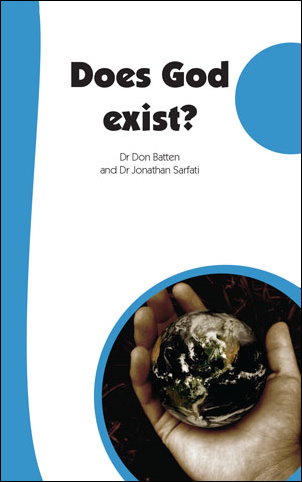Apologetics—a steppingstone, not a crutch

Apologetics is a broad and deep subject. Since it has such deep spiritual ramifications, its easy to understand how the study of apologetics can become an all-consuming endeavor for some. However, this is not without its potential pitfalls. An example my pastor gave in a sermon recently really struck a chord with me, and I want to relate it for you (my own paraphrase, not my pastor’s):
A certain old man had never flown in an airplane in his life. It so happened that one day, an airshow was in town and he was offered the chance to ride in a stunt plane. He was understandably reluctant, but his family and friends all encouraged him and insisted he give it a try. When he got back from the ride, he appeared shaken up. His family asked, “Once you just relaxed and let yourself enjoy it, it was pretty fun, wasn’t it?” The old man replied, “I don’t know! I never did that.”
This is an analogy to what the Christian life, or the Christian faith, is like for some. We are always rigidly holding on for dear life, rather than being relaxed and enjoying the ride. In terms of apologetics, this means we are always inwardly trying to convince ourselves, or stay convinced, that the Bible is really true. We never let ourselves simply relax, breathe easy, and just believe.
In my own experience, I have felt a similar way when flying; when turbulence hits, I always get rigid and hold on tight to the armrests, as if the plane might start careening toward the ground at any moment. It takes faith (not sight—since we can’t really see from within the passenger cabin) to believe that the plane won’t crash just because of some turbulence! But this is important: that faith is not blind faith. You can research the matter all you want: planes are built for turbulence. Pilots are trained to know how to handle it when turbulence hits. The wings are designed to flex. You can have all this ‘head knowledge’, but still when you’re in the situation for real, it takes faith to believe it and remain relaxed. I’m not very good at that.
God wants the same from us: He wants us to stop being anxious, relax, and trust Him. That means we need to come to a place in our faith where we are no longer tightly gripping the armrests, constantly going over all the evidences and arguments to try to stay convinced. The more you adopt this attitude, the harder it will be! Using apologetics as a crutch for your faith in this way is certainly not God’s will, and it will hinder your spiritual growth.
“Do not be anxious about anything, but in everything by prayer and supplication with thanksgiving let your requests be made known to God. And the peace of God, which surpasses all understanding, will guard your hearts and your minds in Christ Jesus.” Philippians 4:6-7
Note that God’s peace is supernatural—it surpasses all understanding! We can never get peace in our hearts by obsessing about arguments and evidences. These have their place: let them be a steppingstone for you, to help you overcome doubts as they arise, or to answer objections from skeptics. This is different from fideism—an irrational blind leap of faith—because we do not say that reason and evidence are irrelevant to faith. We cannot simply pick anything arbitrarily and place our faith in it. God has given us strong reasons to be confident that the Bible is true, but once we accept these, we have to move beyond this kind of thinking in order to grow.
Another example is the golf swing (for those of you who play golf). Ever tried to really hit the ball hard? You’re likely to make a terrible shot. But if you relax your arms and let the momentum of your body drive the club, the ball will go further and straighter than if you tried to hit hard using your arms.
Imagine if someone asked you how you know you have a father. First, let’s assume you had never met your father. In this case, you would appeal to evidences. You could say something like, “1) All people have fathers, otherwise they could not exist. 2) My birth certificate, which is a reliable historical testimony, lists a father. 3) My mother has told me about my father,” etc. However, this is not what our walk with God is supposed to be like! Imagine you had a close relationship with your father. You would not need to list all these proofs! You would simply respond by saying, “I know him.” This is what our life with God is supposed to be like. It is not the arguments and evidences on which our faith must ultimately rest, but rather our knowing God by relationship. This is an ongoing struggle for me, because my analytical mind gravitates toward seeking evidence and arguments. I’m sure this is also a struggle for some of you reading this as well. The solution is more simple than you think. Just stop trying to believe, and believe. Let go, and let God work in your life.
If you are struggling with faith, remember what Paul said: “So faith comes from hearing, and hearing through the word of Christ.” (Romans 10:17) I take this literally. That is why church fellowship is so important. We need to hear the word of God preached, and fellowship with other believers. This builds up our genuine faith. Without this, we run the risk of allowing our faith to become academic, rather than living.







Readers’ comments
Comments are automatically closed 14 days after publication.